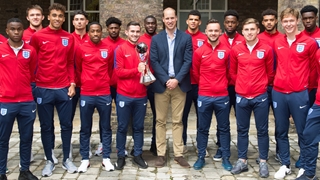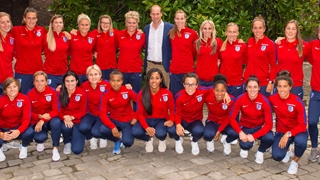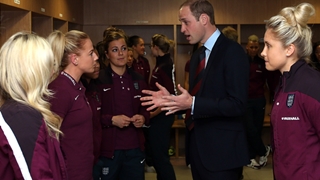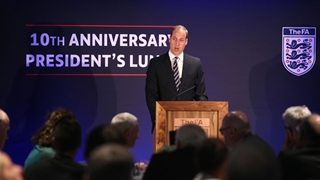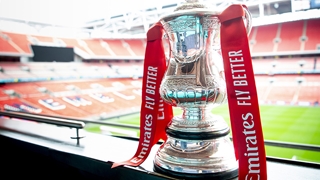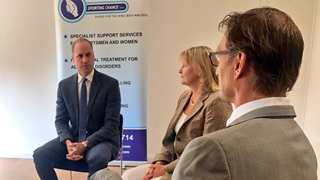
HRH Prince William, the Duke of Cambridge, met victims and survivors affected by non-recent cases of childhood sexual abuse within football at the Sporting Chance clinic in Hampshire.
The clinic, funded by The FA and the PFA, opened in 2000 by founder, patron, and former England captain Tony Adams and specialises in helping professional and former professional sportspeople by providing support for a range of issues from addictive disorders, to bereavement, depression and anxiety.
The FA’s head of safeguarding Sue Ravenlaw joined staff from Sporting Chance, including CEO Colin Bland, the PFA’s head of welfare Michael Bennett, Dr Elly Hanson, an independent specialist in this field, and a handful of former players including former Newcastle United winger David Eatock and Ian Ackley, now a member of the SAVE organisation, to tell the story of The FA’s role in creating a specialist service for adult survivors affected by incidents that occurred in a sporting context.
To date, over 70 individuals have accessed this service which is approximately 10 per cent of the known survivors according to Operation Hydrant statistics in July 2017.
“Since reports of the abuse became public last year, we have worked closely with Sporting Chance to help as many survivors as possible,” said Ravenlaw.
“The charity has developed a network of therapists suitably qualified and experienced to provide support to all those who need their help, which is available to all survivors of football-related sexual abuse, and for people from other sports to access too.”
During the visit, the Duke heard about how the service had also helped partners and families of survivors as well as first hand testimonies from players who had been abused as youngsters.
Bland added: “The work we do in conjunction with The FA and the PFA is an ongoing and collaborative venture. Today allowed us to pause, take stock and share some of the positive interventions.
“This service is helping people, whether they be former professionals or players who have played in grassroots,” said Ravenlaw.
"We want people to know it exists and that its accessible and we thank Prince William for his time and energy in helping us reach more of those individuals.”


